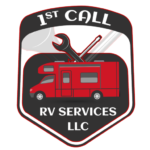
Qualifications for an RV Inspector:
When it comes to purchasing or selling a recreational vehicle (RV), having a thorough inspection is crucial to ensure that it is in good condition and meets safety standards. An RV inspector plays a vital role in this process by conducting a comprehensive examination of the vehicle, identifying any issues or potential problems, and providing an accurate assessment of its overall condition. To become a qualified RV inspector, several essential qualifications and skills are necessary. In this article, we will discuss the qualifications that are commonly sought after in an RV inspector.
Knowledge of RV Systems and Components: A qualified RV inspector should possess a solid understanding of the various systems and components that make up an RV. This includes knowledge of the electrical, plumbing, heating and cooling, propane, and structural systems. Understanding the operation, maintenance, and potential problems associated with these systems is crucial for an inspector to effectively evaluate the condition of an RV.
Technical Expertise: An RV inspector should have technical expertise in conducting inspections. This includes knowledge of inspection techniques, tools, and equipment used in assessing the different components of an RV. They should be familiar with diagnostic tools, such as moisture meters, gas detectors, electrical testers, and infrared cameras, which aid in identifying hidden issues. Proficiency in using these tools and interpreting their results is essential for a thorough inspection.
Industry Certifications and Training: Having industry certifications and relevant training is highly beneficial for an RV inspector. One of the most recognized certifications for RV inspectors is the National RV Inspectors Association (NRVIA) Certified RV Inspector designation. NRVIA offers comprehensive training programs covering all aspects of RV inspection, including technical knowledge, inspection standards, and best practices. Being certified by a reputable organization demonstrates a high level of competence and professionalism.
Understanding of RV Codes and Standards: To effectively evaluate an RV’s condition, an inspector must be well-versed in the applicable codes and standards governing RV construction and safety. This includes knowledge of the National Fire Protection Association (NFPA) standards, American National Standards Institute (ANSI) codes, and Recreational Vehicle Industry Association (RVIA) guidelines. Familiarity with these standards ensures that the inspector can identify any non-compliant or potentially hazardous conditions.
Experience and Background: Experience in the RV industry is highly desirable for an inspector. Previous work in areas such as RV repair, maintenance, or sales can provide valuable insights into common issues, industry practices, and trends. Additionally, experience with different types of RVs, including motorhomes, travel trailers, fifth wheels, and campers, helps broaden an inspector’s knowledge base and enhances their ability to perform thorough inspections.
Strong Communication and Reporting Skills: An RV inspector should possess excellent communication and reporting skills to effectively convey their findings to clients. This includes the ability to explain technical information in a clear and understandable manner, answer questions, and address any concerns raised by the buyer or seller. Additionally, the inspector should be able to provide detailed written reports that outline the inspection results, identify any deficiencies, and offer recommendations for repairs or maintenance.
Attention to Detail: Attention to detail is a critical quality for an RV inspector. They need to be meticulous in their examination of the RV, inspecting each component and system thoroughly. Even minor issues or abnormalities can indicate potential problems down the line. A keen eye for detail helps ensure that no issues go unnoticed during the inspection process.
Ethical Conduct and Professionalism: An RV inspector should adhere to high ethical standards and demonstrate professionalism throughout the inspection process. This includes maintaining confidentiality, acting impartially, and avoiding any conflicts of interest. Professionalism also involves being punctual, respectful, and responsive to clients’ needs and inquiries.
Continuing Education and Keeping Up with Industry Trends: The RV industry is constantly evolving, with new technologies, materials, and construction methods being introduced regularly. A qualified RV inspector should be committed to ongoing education and staying up to date with the latest industry trends. This can be achieved through attending workshops, seminars, and conferences related to RV inspections, joining professional associations, and actively seeking out new information and resources. Keeping abreast of industry developments ensures that an inspector can provide accurate and relevant assessments of modern RVs
Professional Liability Insurance: Obtaining professional liability insurance is an important consideration for an RV inspector. This insurance coverage protects both the inspector and their clients in case of errors, omissions, or negligence during the inspection process. It provides financial protection in the event that a client experiences damages or losses due to an oversight or mistake made by the inspector. Having professional liability insurance demonstrates a commitment to professionalism and offers peace of mind to clients.
Customer Service Skills: While technical expertise is crucial, excellent customer service skills are equally important for an RV inspector. The ability to establish rapport, actively listen to clients’ concerns, and address their questions and needs fosters a positive and professional relationship. A good inspector understands the importance of providing exceptional service, as it contributes to client satisfaction and promotes positive word-of-mouth referrals.
Business and Marketing Knowledge: For those who plan to operate as independent RV inspectors, having a basic understanding of business and marketing principles is beneficial. This includes knowledge of business licensing and registration requirements, insurance considerations, pricing strategies, and marketing techniques to attract clients. Familiarity with these aspects helps an inspector establish and grow their inspection business successfully.
In conclusion, becoming a qualified RV inspector requires a combination of technical knowledge, industry certifications, experience, attention to detail, communication skills, and a commitment to ongoing education. By possessing these qualifications, an RV inspector can effectively evaluate the condition of recreational vehicles, provide accurate assessments, and offer valuable insights to buyers and sellers. Ultimately, the goal is to ensure that RV transactions are conducted with confidence, safety, and transparency.
